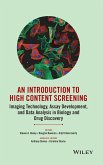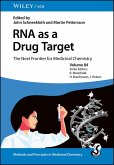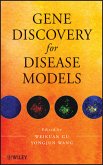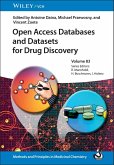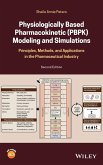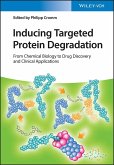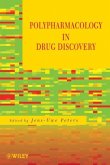Systematically examining current methods and strategies, this ready reference covers a wide range of molecular structures, from organic-chemical drugs to peptides, Proteins and nucleic acids, in line with emerging new drug classes derived from biomacromolecules.
A leader in the field and one of the pioneers of this young discipline has assembled here the most prominent experts from across the world to provide first-hand knowledge. While most of their methods and examples come from the area of pharmaceutical discovery and development, the approaches are equally applicable for chemical probes and diagnostics, pesticides, and any other molecule designed to interact with a biological system. Numerous images and screenshots illustrate the many examples and method descriptions.
With its broad and balanced coverage, this will be the firststop resource not only for medicinal chemists, biochemists and biotechnologists, but equally for bioinformaticians and molecular designers for many years to come.
From the content:
Reaction-driven de novo design
Adaptive methods in molecular design
Design of ligands against multitarget profiles
Free energy methods in ligand design
Fragment-based de novo design
Automated design of focused and target family-oriented compound libraries
Molecular de novo design by nature-inspired computing
3D QSAR approaches to de novo drug design
Bioisosteres in de novo design
De novo design of peptides, proteins and nucleic acid structures, including RNA aptamers
and many more.
Hinweis: Dieser Artikel kann nur an eine deutsche Lieferadresse ausgeliefert werden.
A leader in the field and one of the pioneers of this young discipline has assembled here the most prominent experts from across the world to provide first-hand knowledge. While most of their methods and examples come from the area of pharmaceutical discovery and development, the approaches are equally applicable for chemical probes and diagnostics, pesticides, and any other molecule designed to interact with a biological system. Numerous images and screenshots illustrate the many examples and method descriptions.
With its broad and balanced coverage, this will be the firststop resource not only for medicinal chemists, biochemists and biotechnologists, but equally for bioinformaticians and molecular designers for many years to come.
From the content:
Reaction-driven de novo design
Adaptive methods in molecular design
Design of ligands against multitarget profiles
Free energy methods in ligand design
Fragment-based de novo design
Automated design of focused and target family-oriented compound libraries
Molecular de novo design by nature-inspired computing
3D QSAR approaches to de novo drug design
Bioisosteres in de novo design
De novo design of peptides, proteins and nucleic acid structures, including RNA aptamers
and many more.
Hinweis: Dieser Artikel kann nur an eine deutsche Lieferadresse ausgeliefert werden.


